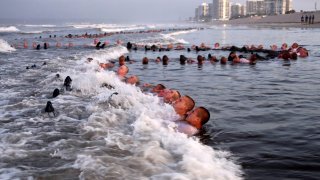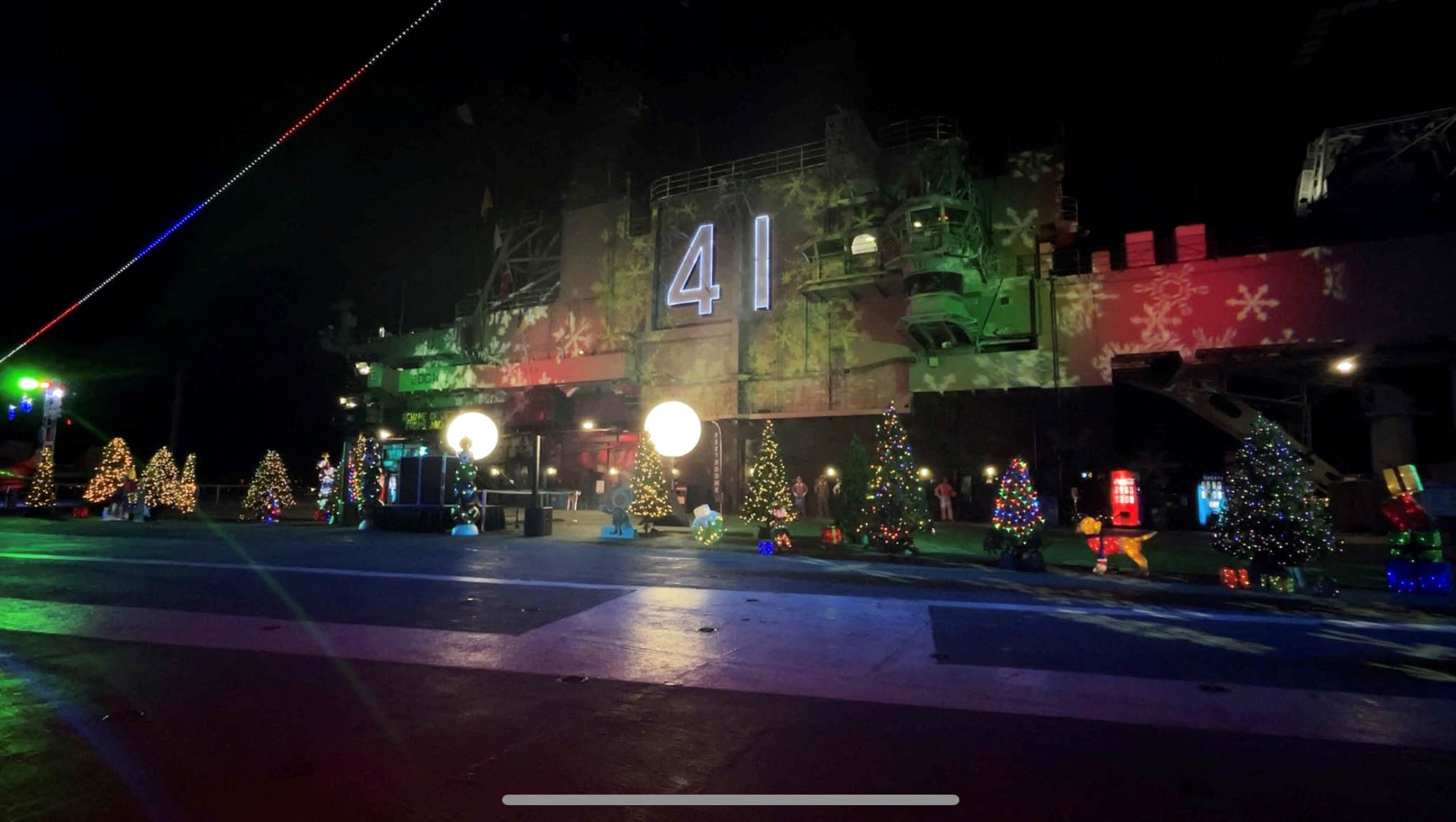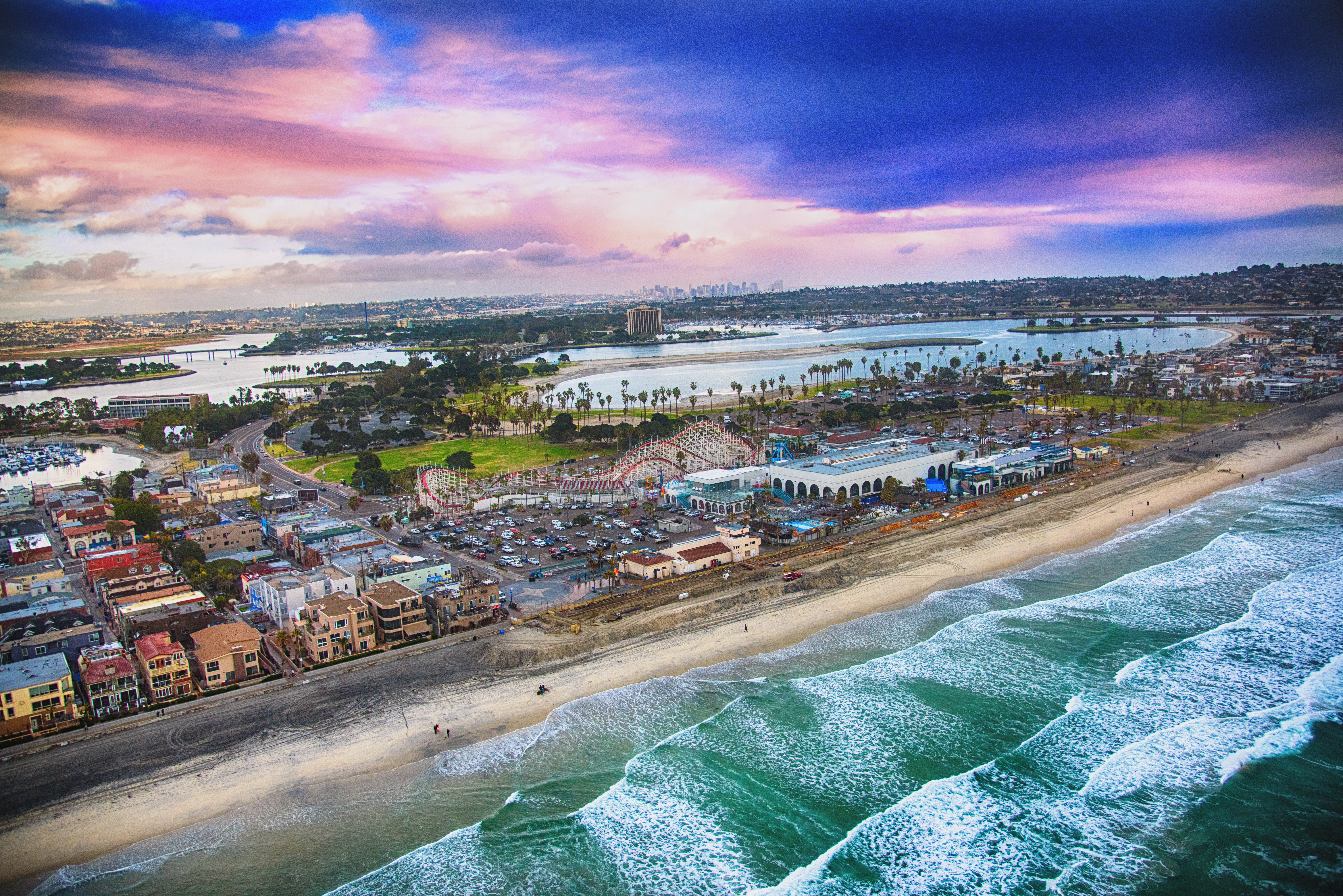
Capt. Brian Drechsler was prematurely relieved of command Tuesday as leadership of the Naval Special Warfare Center was transferred to Captain Mark Burke, according to the U.S. Navy.
The Naval Special Warfare Center is the primary training facility for NSW Officers and enlisted SEALS attending Basic Underwater Demolition/SEAL (BUD/S) Training.
Drechsler, who took command of the training facility in July 2021, remained the leader in February 2022 when Kyle Mullen, a Navy SEAL candidate died during BUD/S training last year. He was due for regular reassignment in mid-July 2023.
"Rear Adm. Davids made the decision to move-up the already scheduled turnover of Capt. Brian Drechsler and Capt. Mark Burke to meet the needs of the Naval Special Warfare Center and properly focus on the remaining issues identified by the Naval Education and Training Command (NETC) investigation into the NSWCEN’s supervision of Basic Underwater Demolition/SEAL (BUD/S) Class 352, said Naval Special Warfare Command Spokesperson Ben Tisdale.
Get top local stories in San Diego delivered to you every morning. >Sign up for NBC San Diego's News Headlines newsletter.
Drechsler, Capt. Brad Geary, and an unnamed senior medical officer were three officers to receive "non-punitive" letters of reprimand in connection with Mullen's death.
The three were not directly blamed for Mullen's death, and Drechsler has not been formally relieved of duty, however, such an investigation is likely a career-ender, the Associated Press reported Tuesday.
The public announcement of Tuesday's Change of Command, led by Rear Adm. Keith Davids, Commander of Naval Special Warfare Command, made no reference to Mullen or the ongoing investigation into Mullen's death, however, Drechsler's transfer could signify a forward step in an ongoing review to determine if any additional punishment is warranted, the AP reports.
Local
When asked however, Naval Special Warfare Command spokesperson Ben Tisdale confirmed that "Rear Adm. Davids made the decision to move-up the already scheduled turnover of Capt. Brian Drechsler and Capt. Mark Burke to meet the needs of the Naval Special Warfare Center and properly focus on the remaining issues identified by the Naval Education and Training Command (NETC) investigation into the NSWCEN’s supervision of Basic Underwater Demolition/SEAL (BUD/S) Class 352.
In a message to his command, obtained by The Associated Press, Drechsler said, “It is crucial that we maintain the momentum we have made to improve our training, safety, and medical oversight while balancing the need to forge the world’s greatest warriors.”
A September 2022 New York Times article reports the U.S. Navy had then recently started an independent investigation of the SEALs’ rigorous selection course after Mullen's death, who was reported to have performance-enhancing drugs among his personal effects. And according to the report, other candidates trying to make the team did, too.
“In his car, they find performance-enhancing drugs, and right away that starts a larger inquiry because if one student was doing drugs, maybe others were,” said New York Times reporter Dave Phillips.
Mullen’s mother, Regina Mullen, told NBC 7 in a September 2022 interview that her son’s toxicology report was negative for performance-enhancing drugs. But SEAL commanders decided to drug test other candidates.
“When the investigation starts, they basically give everybody a urine test that is there, and dozens of guys, about 40, test positive,” Phillips said. “And it’s for all kinds of things, testosterone and also some little-known unregulated supplements called SARMs.”
In its reporting, the New York Times interviewed candidates who suggested some sailors are trying to dope their way through selection because the brutal course has gotten even tougher.
“They felt it had gotten so hard that people felt they couldn’t get through it without doping, without using drugs,” Phillips said.
The Navy says it’s made many changes over the years meant to improve safety and increase graduation rates, including always having medics available and during Hell Week training, present.
Although the Navy didn’t confirm or deny when NBC 7 asked, according to the New York Times, since the death of Mullen, the following changes have been made:
- The course has clamped down on pre-dawn workouts with heavy packs and runs
- Six hours of sleep are allowed nightly except during Hell Week
- Outside auditors have been brought in to monitor instructors
As for the candidates’ health, a Naval Special Warfare spokesperson told NBC 7 that candidates will now get heart screenings, be given an antibiotic at the start of the course to help prevent pneumonia and will be medically monitored longer after Hell Week, all changes implemented under Drechsler's leadership.
Drechsler has been reassigned to Naval Special Warfare Command.
The Associated Press contributed to this report.



